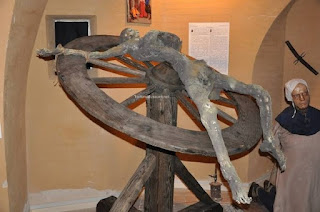Barry Marshall and the Revolutionary Discovery of Ulcer Cure
Going through medical history, few stories are as compelling and courageous as that of Barry Marshall. His journey from skepticism to Nobel Prize-winning recognition is a testament to the power of scientific conviction and the lengths to which one can go to prove a groundbreaking theory. Marshall's pioneering work on Helicobacter pylori and its role in causing stomach ulcers revolutionized our understanding of gastrointestinal diseases and underscored the importance of challenging established medical dogmas.
The Prevailing Paradigm
Before Barry Marshall’s revolutionary discovery, the medical community firmly believed that stomach ulcers were primarily caused by stress, spicy foods, and excess stomach acid. Treatments were often focused on lifestyle changes and acid-suppressing medications. The idea that a bacterial infection could be responsible for such a condition was not just unorthodox but was met with outright skepticism.
Marshall, an Australian physician, began his collaboration with pathologist Robin Warren in the early 1980s. Warren had observed spiral-shaped bacteria in the stomach lining of patients with gastritis and peptic ulcers. Intrigued by these findings, Marshall and Warren hypothesized that these bacteria, later named Helicobacter pylori, were the culprits behind these common gastrointestinal ailments.
The Struggle for Acceptance
The scientific community’s resistance to their hypothesis was formidable. The prevailing belief was so deeply entrenched that many dismissed the idea of a bacterial cause for ulcers out of hand. Peer-reviewed journals rejected their papers, and funding for further research was hard to come by. The skepticism was partly due to the long-standing belief that the stomach’s acidic environment was too harsh for any bacteria to survive.
Faced with mounting opposition and limited means to test their theory on human subjects due to ethical constraints, Marshall took a radical step. Convinced of the validity of his hypothesis and determined to demonstrate the pathogenic role of Helicobacter pylori, he decided to become his own test subject.
The Self-Experiment
In 1984, Barry Marshall ingested a broth containing Helicobacter pylori. His goal was to develop gastritis and potentially ulcers, thereby proving the bacteria’s role in causing these conditions. Within days, Marshall began experiencing the symptoms of gastritis: nausea, vomiting, and stomach discomfort. Subsequent endoscopies confirmed the presence of inflammation and the bacteria in his stomach lining.
Marshall then treated himself with a course of antibiotics, effectively eradicating the bacteria and curing his condition. This self-experiment provided compelling evidence that Helicobacter pylori was indeed responsible for causing gastritis and peptic ulcers. While it was a drastic and risky measure, it was instrumental in convincing the medical community of the validity of Marshall and Warren’s hypothesis.
The Shift in Medical Paradigms
The implications of Marshall’s experiment were profound. The medical community began to reconsider the long-held beliefs about the causes of stomach ulcers. Over time, additional studies corroborated Marshall and Warren’s findings, leading to a paradigm shift in the treatment and understanding of gastrointestinal diseases.
By the 1990s, the role of Helicobacter pylori in causing peptic ulcers was widely accepted. The treatment protocols evolved to include antibiotic therapy to eradicate the bacteria, coupled with acid-suppressing medications to promote healing of the stomach lining. This new approach dramatically improved the outcomes for patients suffering from these conditions, reducing the need for surgeries and long-term medication regimens.
Recognition and Legacy
In 2005, Barry Marshall and Robin Warren were awarded the Nobel Prize in Physiology or Medicine for their discovery. The Nobel Committee recognized their pioneering work, which fundamentally changed the understanding and treatment of peptic ulcer disease. Their persistence, ingenuity, and willingness to challenge established medical beliefs have had a lasting impact on medical science.
Marshall and Warren’s story is a remarkable example of scientific tenacity. It highlights the importance of questioning prevailing paradigms and the value of innovative thinking in advancing medical knowledge. Their work not only improved the lives of millions of patients worldwide but also opened new avenues of research into the role of bacteria in other chronic conditions.
A Lasting Impact
Today, the discovery of Helicobacter pylori is considered one of the most significant medical breakthroughs of the 20th century. It has spurred ongoing research into the microbiome and its impact on human health. The understanding that bacteria can play a crucial role in chronic diseases has led to new insights and treatments for a variety of conditions beyond the gastrointestinal tract.
Barry Marshall’s story is a powerful reminder of the importance of perseverance in the face of skepticism. It underscores the necessity of evidence-based medicine and the willingness to embrace unconventional ideas when the evidence supports them. Marshall’s bold self-experiment not only proved a scientific theory but also demonstrated the profound impact that one individual’s dedication can have on global health.
In conclusion, Barry Marshall’s journey from a controversial hypothesis to Nobel Prize-winning discovery exemplifies the spirit of scientific inquiry and the relentless pursuit of truth. His work on Helicobacter pylori has transformed the treatment of stomach ulcers and continues to inspire future generations of scientists and medical professionals.




Comments
Post a Comment